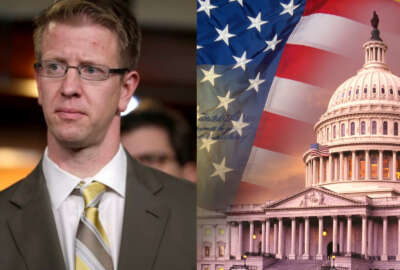FCC has plan to meet broadband demand
Ruth Milkman, chief of the Wireless Telecommunications Bureau at the FCC joins the Federal Drive on the lengthy process
wfedstaff | June 3, 2015 11:08 pm
The Federal Communications Commission has been one of the most active agencies under the Obama administration. A major initiative is converting unused or underused television and radio spectrum to broadband, where demand is growing fast.
“What we’re seeing is a big gap between the amount of spectrum that’s currently available for wireless broadband, and there’s a small amount in the pipeline, and the projected demand,” said Ruth Milkman, chief of the Wireless Telecommunications Bureau at the FCC.
The FCC has control over all spectrum, and distributes it either for highest commercial use, or public utility. All spectrum is licensed, and there is finite amount (ie., it cannot be created). Which is why the FCC is facing a potential problem.
“The demand for spectrum that can be used for wireless devices, particularly wireless broadband, is increasing at phenomenal rate,” Milkman said. “Everybody’s got a smartphone now, it seems like, and smartphones use a lot more capacity than just a regular voicephone.”
Tablets, such as iPads, and laptops that are used to go on the internet wirelessly take up even more broadband.
In addition, the commission is constantly evaluating spectrum currently in use to ensure that it is used as efficiently as possible. So the FCC is targeting spectrum that is not being fully used for other purposes to see if it can be re-purposed for broadband use.
Currently, the FCC is waiting on Congressional approval to conduct incentive auctions. The FCC awards licenses through auction, and proceeds go directly to the US Treasury. In this case, the FCC is seeking authority to share auction proceeds from re-purposed spectrum with incumbent licensees.
“So if a broadcaster wants to share a channel with another television station, seems only fair if they’re turning in some of their spectrum rights that they should get a share of the proceeds,” Milkman said. “That would give them an incentive to use the spectrum more efficiently, and also free up spectrum that could then be auctioned for wireless use.”
The incentive auctions, Milkman said would be positive all around; it would create value for spectrum that is currently not utilized. Incumbent licensees get value for their unused spectrum, new holders of wireless licenses now have spectrum to use and profit from, it generates income for the U.S. Treasury and overall consumers benefit through better quality wireless service.
“Our chairman is fond of going around saying that this will be a ‘Win, win, win win!’, ” Milkman said.
Copyright © 2024 Federal News Network. All rights reserved. This website is not intended for users located within the European Economic Area.





